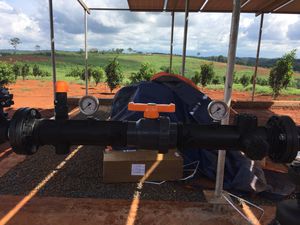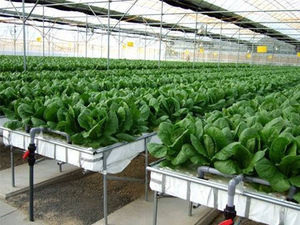
- Seeds and crop inputs
- Crop input
- Mineral fertilizer
- SURYA AGROTECH THAILAND CO LTD

- Products
- Catalogs
- News & Trends
- Exhibitions
Mineral fertilizer NPKwith trace elementsgranular
Add to favorites
Compare this product
fo_shop_gate_exact_title
Characteristics
- Type
- mineral
- Main composition
- NPK, with trace elements
- Format
- granular, powder
- Applications
- ground application
- Type of plantation
- biological
Description
Organic Fertilizers
AGRI GOLD ORGANIC FERTILIZER:
The words “organic” or “natural” in this case simply means that the product is only minimally processed, and the nutrients remain bound up in their natural forms, rather than being extracted and refined. In the case of fertilizer, “organic” does NOT refer to the standards of processing associated with food.
Organic fertilizer is usually made from plant or animal waste or powdered minerals. Examples include manure and compost, as well as bone and cottonseed meal. They are usually sold as “soil conditioners” rather than as fertilizer because the nutrient ratios are difficult to guarantee. Organic fertilizers may be processed in a factory, or, in the case of manure and compost, at a farm.
Advantages of Organic Fertilizer:
In addition to releasing nutrients, as organic fertilizers break down, they improve the structure of the soil and increase its ability to hold water and nutrients. Over time, organic fertilizers will make your soil–and plants–healthy and strong.
Since they are the ultimate slow-release fertilizers, it’s very difficult to over-fertilize (and harm) your plants.
There’s little to no risk of toxic buildups of chemicals and salts that can be deadly to plants.
Organic fertilizers are renewable, biodegradable, sustainable, and environmentally friendly.
Although rather expensive in packages, you can make your own organic fertilizer by composting or find inexpensive sources—such as local dairy farms—that may sell composted manure.
Other SURYA AGROTECH THAILAND CO LTD products
Products
*Prices are pre-tax. They exclude delivery charges and customs duties and do not include additional charges for installation or activation options. Prices are indicative only and may vary by country, with changes to the cost of raw materials and exchange rates.




